
OR
Historically most rights violators from conflict era have been granted amnesty
Published On: September 21, 2016 12:02 AM NPT By: Republica | @RepublicaNepal
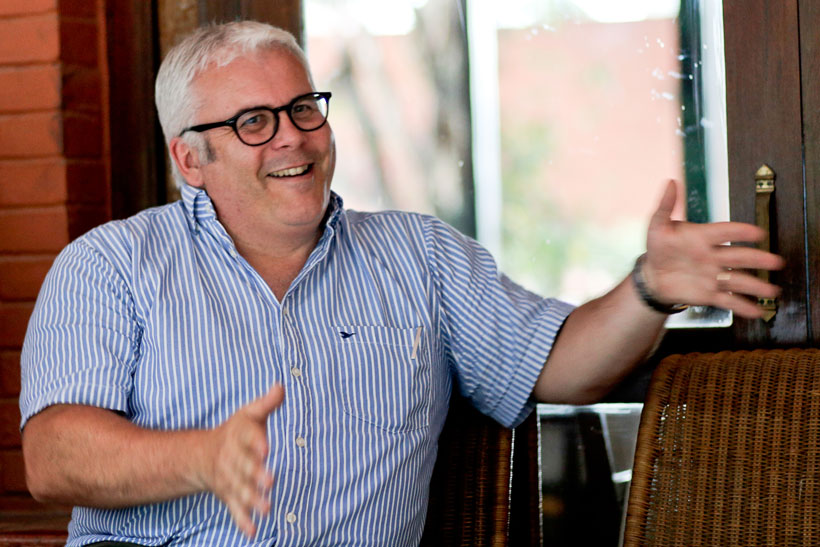
Paul Jackson, a political economist working predominantly on conflict and post-conflict reconstruction, has closely studied post-conflict African countries like Sierra Leone and Zimbabwe. He has also been involved in Nepal’s peace process since 2009, as a foreign consultant helping with the supervision, integration and rehabilitation of ex-Maoist combatants. Republica’s Biswas Baral talked to Jackson, who is also a professor of African Politics at Birmingham University, to understand how the peace process in Nepal compares to other peace processes. Has it been a success? How does Nepal get transitional justice right?
As someone closely involved with the peace process in Nepal, what is your assessment? How do you compare Nepal’s peace process with similar processes in other countries?
A peace process is never smooth. But if I compare Nepal’s peace process to similar processes in other countries, I would say Nepal has had a smoother ride. It’s been more polite, the discussions focused on real issues and both the sides have been more disciplined than you would see in many African countries I have dealt with. I cannot imagine an insurgent group spending such a long time in cantonments in any country I have involved with in Africa without there being widespread bloodshed.
Do you think that is because the insurgency in Nepal was relatively short-lived and most of the cantoned fighters had been recently enlisted?
Rather than that I think the insurgents here had a level of discipline that you don’t get in most of the rebel groups. For instance the RUF (Revolutionary United Front) in Sierra Leone with which I worked were more a criminal organization than a revolutionary group; whereas the Maoists in Nepal were largely driven by ideology. You talked to the Maoist leaders of all ranks and they all seemed united by an ideology. This brought discipline. At the same time, the Nepal Army and Nepal Police were also equally disciplined. I know of many other insurgencies where the rebels would never have given up their weapons as the army or the police would have walked into the camps and shot them. So both the sides in the Nepali peace process deserve credit.
Can you give us some examples of how the peace process in Nepal has been smoother compared to peace processes elsewhere?
The first thing to say is that Nepal had a process in place. Like all processes it had real issues. But in the end all the issues were resolved politically and so the process was a success. This is because all the sides were committed to political solutions. That made a real difference. At the start, there was a danger that the Maoists could return to the jungle. But I think that danger has more or less passed.
- Your prime minister is in some ways in the position of Sudan’s Omar al-Bashir, who might be arrested in some countries.
- It’s a difficult balancing act between encouraging people to come forward and prosecuting anybody who does so.
- Perhaps 10 percent of all combatants are deeply dissatisfied with what they got out of the peace process.
- If you talk about Indian interference in particular, there was very little of it in the peace process itself.
When the Maoist combatants were given the option of either integrating into the national army or rehabilitation in the society, most chose the latter course. Is that also the case in other countries?
Even the Nepali peace process started with the premise that the Maoists wanted all their combatants to be integrated into Nepal Army on an ‘equal basis’. The army declined to do so. So we went from there to asking how many Maoist combatants wanted to be soldiers as a career. If you look at any insurgency, most people sign up not because they want to be soldiers. They sign up because they believe in an ideology or they want to get something. Most Maoist combatants said that they felt disempowered and that they wanted to change the society.
Another thing is that the Maoists saying that they wanted all insurgents to be integrated into the national army and the army declining to do so was initial political posturing on both the sides. The starting points for negotiations, if you will. Also, you have to consider that being in a rebel group is a completely different experience to being in a regular army. So many Maoists were simply not ready for the transition. So I am not surprised that many didn’t choose the path of integration.
The peace process in Nepal is inextricably linked to the constitution process. Do you see complications over the implementation of the constitution somehow undermining the achievements of the peace process so far?
I think the danger of the constitution process is that people have great expectations, say with federalism, which may or may not deliver what they want. The danger of federalism is that you just create another layer of government and you don’t give much say to the people down at the bottom, which is what they are expecting. What they least want is just another layer of bureaucracy, which also makes it expensive, and which means you are spending on bureaucracy the money you could have spent on other things.
Another issue that is related both to the peace as well as the constitution process is how you deal with the issue of transitional justice and how do you make the two transitional justice bodies functional. It’s a difficult balancing act between encouraging people to come forward and talk about what happened, and prosecuting anybody who comes forward. At some point there has to be a political decision on where that balance is going to lie.
But how do you get this balance right? For instance there have been complaints filed in the Truth and Reconciliation Commission against the current prime minister of Nepal. Who gets punished and who does not?
That is the most difficult question in any truth and reconciliation process. We have had problems with finding the right balance even back in the UK, in course of the peace process in Northern Ireland. The tragedy is that there are no answers that satisfy everyone. For instance, even in South Africa, there were lots of people who had their stories recognized by the truth and reconciliation commission but nothing was done to prosecute those involved in those crimes. Yes, the perpetrators admitted to their crimes, crimes like torture, but they were not prosecuted.
Would it then be right to say that in any peace process the vast majority of the perpetrators of grave rights violations are granted amnesty and only a handful are prosecuted as emblematic cases?
That has been the practice of truth and reconciliation commissions and special courts historically. For instance, the special court in Sierra Leone did not prosecute that many people save a few rebel commanders who were well known for encouraging human rights violations directly. There was one guy called Mosquito, named so because he used to push people off buildings and tell them to fly like a mosquito. So you could make a definite case against him. Where it gets difficult is putting together a case against a commander because establishing a chain of command is incredibly difficult.
So there is a high level of arbitrariness that is inherent to any peace process?
Yes, there is a level of arbitrariness but it also depends on whether there is direct evidence to prosecute somebody. This goes for both the sides to the combat.
One of the senior officers of Nepal Army, Colonel Kumar Lama, was arrested in the UK in 2012 on torture charges stemming from the conflict period. Current prime minister and Maoist leader Pushpa Kamal Dahal is also reported to have cancelled foreign trips fearing prosecution abroad. Does it mean someone involved in the Nepali conflict will always have to be wary when travelling abroad?
When talking to members of the international community in Nepal, I get a feeling that they are concerned that even the perpetrators of gross human rights violations might get away. I think there is a misunderstanding here, when you somehow believed that everyone related to the national army and everyone related to the rebel forces were going to be put on trail. That never happens. But those who perpetrated gross rights violations, for instance the commander of an army unit that massacred a whole village or a Maoist commander who directly ordered an assassination, those are the kind of people likely to be put on trial.
The Lama case is interesting. There is an international obligation to bring people to court for human rights violations. So the UK government had to heed an international human rights organization demanding that this person be brought to trial. But the case is also interesting because it shows that it is incredibly difficult to put together evidence to prosecute anybody for war crimes.
But a British court ultimately released Lama saying there was insufficient evidence. Is it right to jail someone for years on end even though there is scant evidence against him?
That is the problem with international jurisdiction. For instance, if your prime minister went somewhere and a case was brought against him, he might not be put in a jail, but he might be held in custody for a short duration or he might be ordered to appear before court at particular intervals. He might also be denied future travel to that country. So your prime minister is in some ways in the position of Sudan’s President Omar al-Bashir, who might be arrested in some countries he visits.
There is empirical evidence that the societies that have witnessed conflicts in the past are likely to relapse into conflicts. Why is that? And do you foresee more such conflicts in Nepal?
Yes, if you have had one war, you are much more likely to have another war. However, there is also empirical evidence that the next war is likely to take place within the five years of the start of the peace process. Nepal has been pretty peaceful for much longer. I would also distinguish between a war and a conflict. Even today, there are conflicts in different parts of Nepal but no war. But I would also say it is very unlikely that the Maoists would go back to war. That is because of the nature of the peace process in Nepal and how the Maoist leadership has been able to successfully reinvent itself into a functioning, democratic political party. Such a transition is rare internationally.
But that is just one of the many Maoist parties in existence in Nepal right now. What about the other Maoist outfits?
Of all the former Maoist combatants that I have talked to over the years I would say there is a small group, comprised of perhaps 10 percent of all combatants, who are deeply dissatisfied with what they got out of the peace process. These are the people who were disqualified for integration into the national army, those who aspired for better position within the Maoist party and didn’t get it, and those who got the money for voluntary retirement but didn’t properly use it. For instance there are people in various jails in Kathmandu who quickly spent all their money and then turned to criminal activities to make their ends meet. What surprises me is how few of them have turned to criminal activities. In Africa, many more would have taken to crimes. This is a measure of the ideological belief of Maoists that they wanted to do something positive for the society. So even within the Maoist movement, there was an antipathy to criminal activities.
Do you think the peace process in Nepal was driven largely by foreigners or was it, at its heart, driven by Nepalis?
I recently heard a Western academic in Nepal say that it’s a fiction that Nepal’s peace process is either successful or a Nepali process. I would argue against both those positions. If you talk about Indian interference in particular, there was very little of it in the peace process itself. Having attended many meetings of the Special Committee (for the rehabilitation of Maoist combatants), right from the start of the process, I don’t recall anyone mentioning India, even once. So this was very much a Nepali process.
Even in our discussions so far it becomes clear that any peace process is lengthy and complex. When can we say a peace process has ended?
That’s a really good question, but I don’t think there is a definitive end date. In Sierra Leone, although the war there ended in 2000-2001, there are still issues about the war, even though the country has already been through the process of the truth and reconciliation and the special court. It takes a long time to do transitional justice properly. I talked to the chairman of Nepal’s TRC the other day, and he says he has a minimum of 50,000 cases. But that is just the tip of the iceberg. For the conflict victims who don’t know what happened to their family members during the war, the peace process won’t end unless they find out what actually happened, so that they can have some kind of closure.
But who decides whether the victim families have gotten justice so that they can have the closure you talk about?
The way it is going to work in Nepal is that the TRC will decide that. But there are other ways of doing it. The TRC can set up a separate committee to determine reparations based on some criteria. But these things are always arbitrary. This is why some people are always unhappy. There are also cases where people have declined monetary compensations because they didn’t think it was right.
You May Like This

Nepalis staying illegally in UAE urged to make the most of amnesty
KATHMANDU, Aug 1: The Nepali Embassy in the United Arab Emirates (UAE) has urged the Nepalis living in the UAE illegally... Read More...
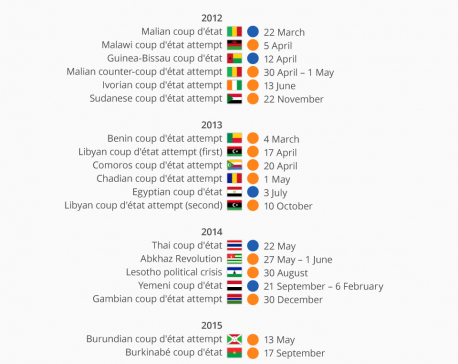
Infographics: Most coup attempts in recent years have failed
Most coup attempts in recent years have failed ... Read More...
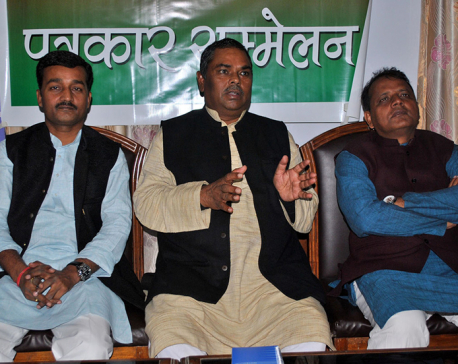
No implementation of constitution until equal rights granted to all: Yadav
PARSA, Nov 21: Federal Socialist Forum Nepal Chairperson Upendra Yadav has claimed that the implementation of new constitution could not... Read More...



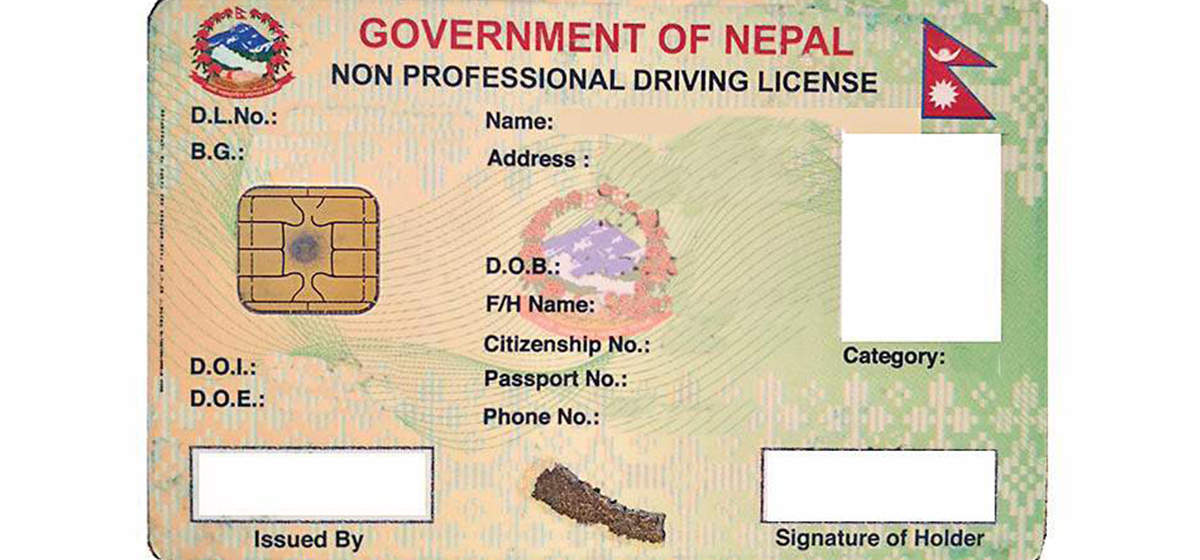

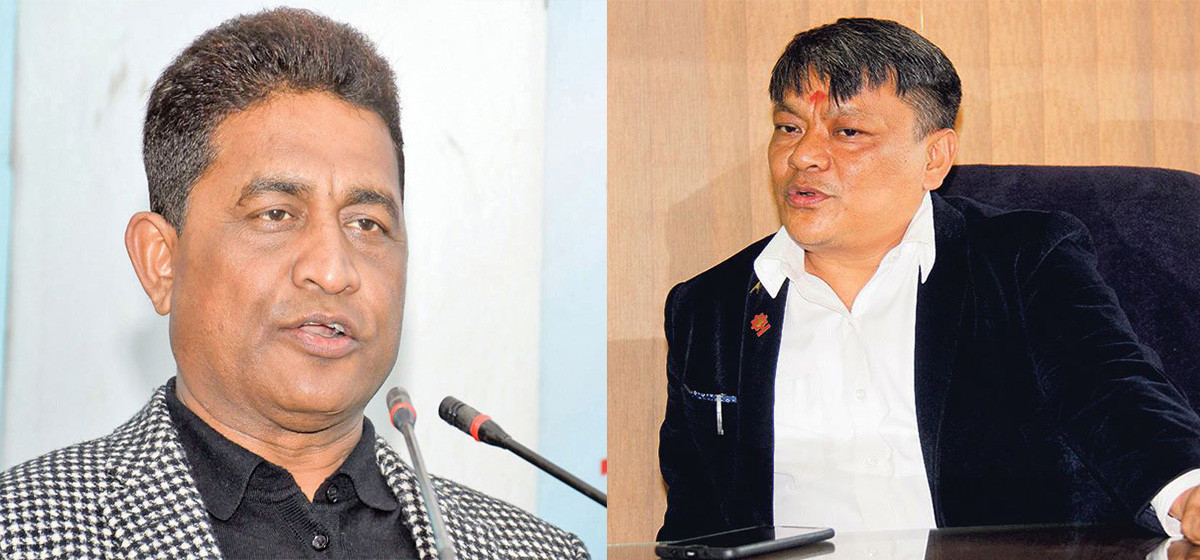
Just In
- Former DoTM employee Bhatta arrested in connection with illegal license issuance case
- One killed in a fire incident in Dadeldhura
- JSP Central Executive Committee meeting being held today to discuss national convention representative election guidelines
- KMC adjust office hours, services now start at 9AM
- Five-match T20 series: first match between West Indies 'A' and Nepal starts today
- Govt yet to pay Rs 60 billion to contractors
- Nepal’s poorest district identified as Bajura, richest as Mustang
- Wind storm likely at a few places of Koshi and Sudurpaschim








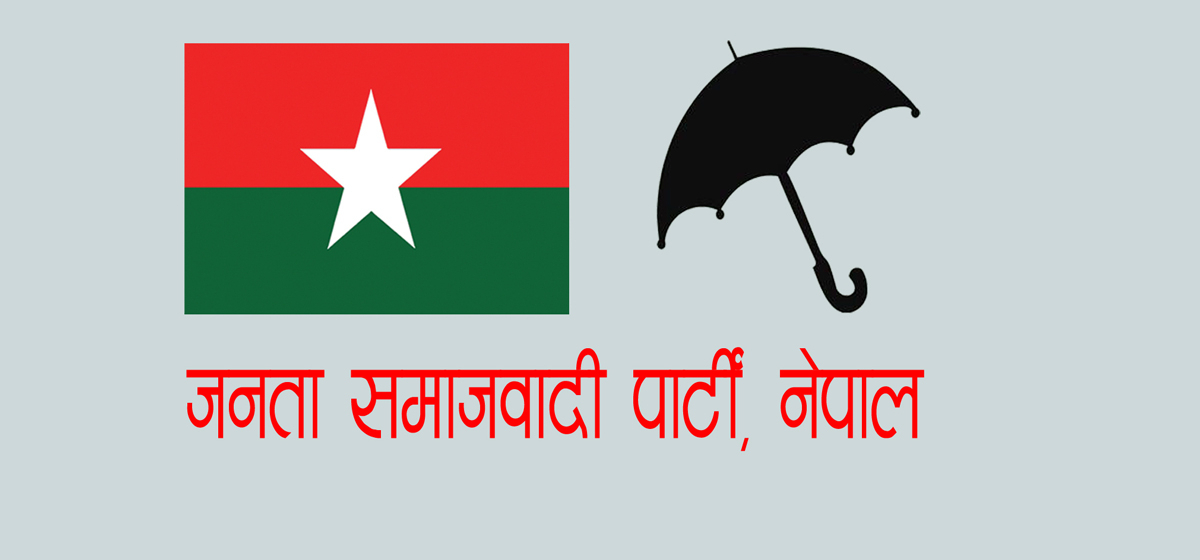

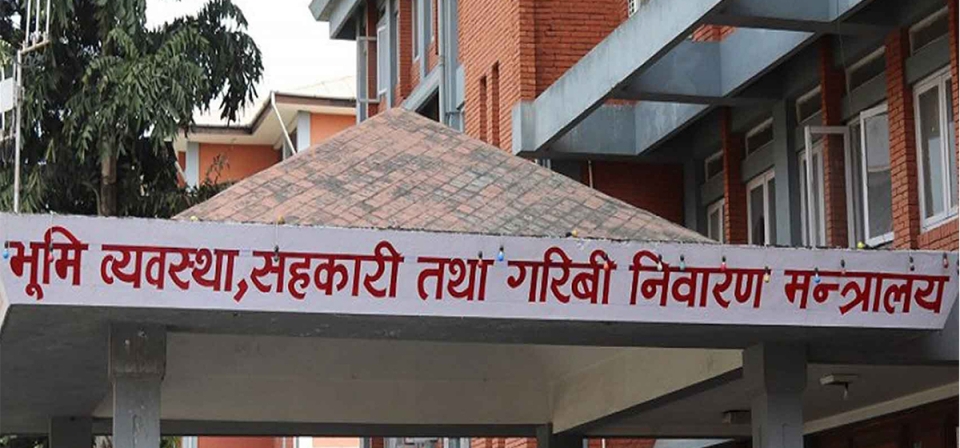

Leave A Comment